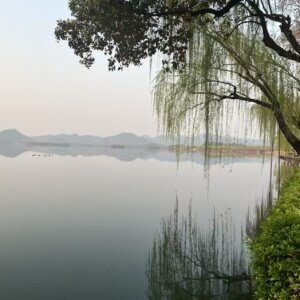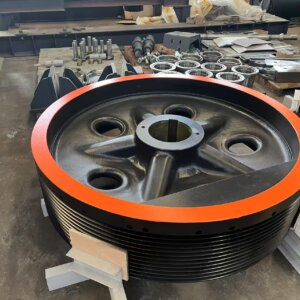China’s bamboo resources have the potential to support a new industry of bamboo composite materials, which could be worth trillions and help achieve the country’s “carbon neutral” goals.

One company leading the way in this industry is CRCC, which has been exploring new applications for bamboo composite materials in pipeline and tunnel construction.

After numerous tests and process improvements, CRCC successfully developed a special type of bamboo composite pipe in 2022 that meets all the requirements for high-pressure ventilation ducts in tunnels. The new product has been in use for over a year, and its high cost-effectiveness has given it a new competitive advantage in the market.
Bamboo-wrapped pipeline is a new type of biobased pipeline made of bamboo as the base material, resin as the adhesive, and wrapped through an automated process. This pipeline has several advantages, including light weight, high tensile strength, corrosion resistance, low cost, green production, and a service life of more than 50 years. It can withstand pressures of up to 20,000 Newtons per square meter, which is much higher than that of ordinary concrete. The bamboo-wrapped pipeline has broad application prospects in various fields such as transportation, aerospace, and construction. It has been successfully used in various nation-building infrastructure projects.

Compared to traditional spiral welded steel pipes with a diameter of 219 mm, which are expensive to manufacture, maintain, and install due to their weight and high thermal conductivity, the new bamboo composite pipe has a much smoother inner surface with a small roughness and friction coefficient. This has significantly increased its conveying capacity while reducing the number of joints required by 30% and weighing only 30% of steel pipes. In addition, the production process of bamboo composite pipes consumes no fossil energy, produces no waste gas or water, and is an environmentally friendly and low-carbon product.

CRCC’s bamboo composite pipe factory requires 7,500 tons of bamboo strips per year for each standard production unit, which equates to 60,000 tons of raw bamboo consumption annually. With an annual production capacity of 1.2 million tons of bamboo composite pipes, this technology could reduce CO2 emissions by approximately 6 million tons and sequester about 10 million tons of carbon per year.

This development is not only crucial in helping China achieve its carbon peak and carbon neutral goals but also has the potential to support rural revitalization strategies.
Note: CRCC – China Railway Construction Corporation.












